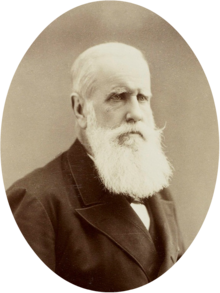
Back Declive y caída de Pedro II de Brasil Spanish Declínio e queda de Pedro II do Brasil Portuguese Упадок и падение Бразильской империи Russian Занепад і падіння монархії в Бразилії Ukrainian
This article's tone or style may not reflect the encyclopedic tone used on Wikipedia. (November 2021) |
| ||
|---|---|---|
|
Early life (1825–40) |
||
| Pedro II | |||||
|---|---|---|---|---|---|
 Pedro II c. 1887 | |||||
| Emperor of Brazil | |||||
| Reign | 7 April 1831 – 15 November 1889 | ||||
| Coronation | 18 July 1841 Imperial Chapel | ||||
| Predecessor | Pedro I | ||||
| Successor | Monarchy abolished | ||||
| Regents | See list (1831–1840) | ||||
| Prime ministers | See list | ||||
| Head of the Imperial House of Brazil | |||||
| Tenure | 7 April 1831 – 5 December 1891 | ||||
| Predecessor | Pedro I, Emperor of Brazil | ||||
| Successor | Isabel, Princess Imperial | ||||
| Born | 2 December 1825 Palace of São Cristóvão, Rio de Janeiro, Empire of Brazil | ||||
| Died | 5 December 1891 (aged 66) Paris, France | ||||
| Burial | 5 December 1939 | ||||
| Spouse | |||||
| Issue Detail | |||||
| |||||
| House | Braganza | ||||
| Father | Pedro I of Brazil | ||||
| Mother | Maria Leopoldina of Austria | ||||
| Religion | Roman Catholicism | ||||
| Signature | |||||
The decline and fall of Pedro II of Brazil took place in the 1880s. It coincided with a period of economic and social stability and progress for the Empire of Brazil, with the nation achieving a prominent place as an emerging power in the international arena.
While Pedro II's rule began in 1840,[1] the roots of the collapse of the monarchy can be traced as far back as 1850, when Pedro II's youngest male child died. From that point onward, the emperor himself ceased to believe in the monarchy as a viable form of government for Brazil's future, as his remaining heir was a daughter. Although constitutionally permitted, a female ruler was considered unacceptable by both Pedro II and the ruling circles. This issue was deferred for decades, while the country became more powerful and prosperous. So long as the emperor was in good health, the question of succession could be ignored.
From 1881 on, Pedro II's health began to fail, and he gradually withdrew from public affairs. Weary of being tied to a throne that he doubted would survive his death, he persevered because there seemed to be no immediate alternative and because it was his duty. His daughter and heir, Isabel, also did not exhibit a desire to assume the crown. Both, however, had the support of the Brazilian people. The royal family's indifference to the Imperial system allowed a discontented republican minority to grow bolder and eventually launch the coup that overthrew the Empire.
Pedro II may be considered a rare instance of a head of state who, despite being considered a highly successful ruler to the end, was ultimately overthrown and exiled.
- ^ Barman 1999, p. x.
© MMXXIII Rich X Search. We shall prevail. All rights reserved. Rich X Search
